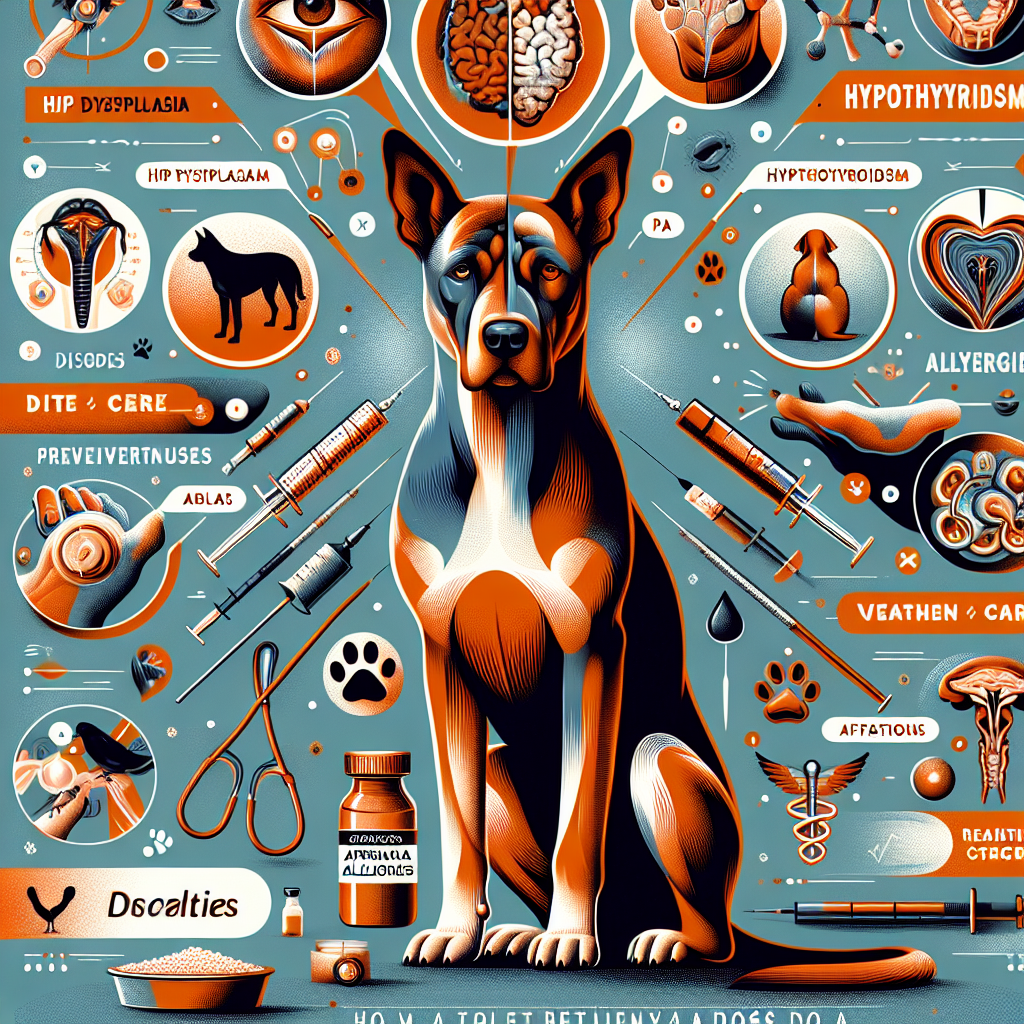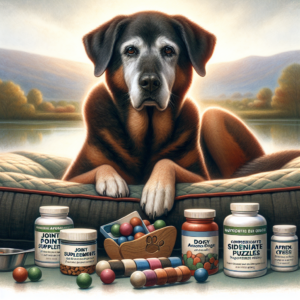Contents
Introduction
Maintaining the health and wellness of your Africanis dog requires proactive care, attentive monitoring, and regular check-ups. Just like any breed, Africanis dogs are susceptible to certain health issues, some of which may be breed-specific. Understanding these potential concerns, along with preventive measures, will help ensure a long, healthy life for your dog. In this comprehensive guide, we will explore the common health issues seen in Africanis dogs, how to detect and manage them, and provide tips on routine veterinary care, nutrition, and overall well-being.
Breed-Specific Health Concerns
Every dog breed has its own set of potential health risks. The Africanis breed is generally known for being robust and adaptable, but like all dogs, they are still prone to certain genetic conditions and health problems. Proactive healthcare and early intervention are crucial to manage these risks effectively.
1. Hip Dysplasia
Hip dysplasia is a common orthopedic issue in many dog breeds, and while it’s more frequently associated with larger dogs, Africanis dogs can also be affected. This condition occurs when the hip joint doesn’t develop properly, leading to joint instability, pain, and eventually arthritis.
Signs to Watch For: Difficulty standing or walking, lameness, reluctance to jump or run, and stiffness.
Preventive Measures: Early detection through routine veterinary exams, and screening through X-rays. Regular exercise to maintain healthy joint mobility and weight management can help reduce the strain on the hips.
Treatment: Treatment options vary from weight management, anti-inflammatory medications, joint supplements like glucosamine, and in severe cases, surgery.
2. Progressive Retinal Atrophy (PRA)
PRA is a genetic condition that leads to gradual blindness in dogs. It affects the retina and causes it to deteriorate, leading to vision loss over time. While it is a condition commonly associated with several dog breeds, Africanis dogs may also be genetically predisposed.
Signs to Watch For: Night blindness, difficulty navigating in low-light conditions, and increased hesitancy in new or unfamiliar environments.
Preventive Measures: There is no cure for PRA, but early detection can help with managing the dog’s quality of life. Regular eye exams from a veterinary ophthalmologist are recommended.
Treatment: No cure exists, but dogs can often adapt to their blindness by learning to rely on other senses and can lead a fulfilling life with the help of supportive care.
3. Hypothyroidism
Hypothyroidism occurs when the thyroid gland doesn’t produce enough thyroid hormone, leading to a slowed metabolism, lethargy, and other symptoms. Africanis dogs may have a higher predisposition to this condition due to genetic factors.
Signs to Watch For: Weight gain despite normal eating habits, lethargy, dry skin, hair loss, and sensitivity to cold.
Preventive Measures: Regular blood tests to check thyroid hormone levels can help detect hypothyroidism early. Managing stress levels and maintaining an optimal weight is also beneficial.
Treatment: Hypothyroidism is treated with thyroid hormone replacement medication, which helps manage symptoms and maintain normal metabolic function.
4. Allergies
Many Africanis dogs experience allergies, which can be triggered by environmental factors like pollen, dust mites, or certain foods. These allergies can result in skin irritation, itching, and even gastrointestinal issues.
Signs to Watch For: Itchy skin, excessive licking or scratching, ear infections, digestive upset, and watery eyes.
Preventive Measures: Identifying and avoiding allergens, regular bathing to remove allergens from the skin, and considering hypoallergenic dog foods if food allergies are suspected.
Treatment: Treatment may include antihistamines, corticosteroids for inflammation, and allergy testing to pinpoint specific triggers. In some cases, immunotherapy may be recommended for long-term relief.
Routine Veterinary Care
Routine veterinary care is the cornerstone of proactive health management for Africanis dogs. Regular check-ups ensure that any potential health issues are caught early, allowing for prompt treatment and better outcomes.
1. Regular Check-Ups
Annual or bi-annual check-ups are essential for maintaining your dog’s health. During these visits, the veterinarian will assess your dog’s overall condition, check for signs of illness, and perform necessary screenings.
What’s Included in a Check-Up:
- Physical examination
- Blood work to check organ function and overall health
- Screening for parasites, such as heartworm, fleas, and ticks
- Joint and bone examination to identify early signs of arthritis or dysplasia
- Eye exams to monitor for conditions like PRA or cataracts
2. Vaccinations
Vaccines are essential for protecting your Africanis dog from preventable diseases. Common vaccinations include:
- Core Vaccines: Rabies, distemper, parvovirus, and adenovirus.
- Non-Core Vaccines: Leptospirosis, Bordetella (kennel cough), and Lyme disease, depending on your dog’s exposure risk.
A veterinarian will recommend a vaccination schedule based on your dog’s age, lifestyle, and geographic location. Following this schedule helps prevent potentially life-threatening diseases.
3. Dental Care
Dental hygiene is an often overlooked aspect of pet care, but it’s crucial to prevent oral diseases like periodontal disease, which can lead to tooth loss, infection, and even organ damage if left untreated.
Prevention: Regular teeth brushing with a dog-specific toothbrush and toothpaste is the best way to prevent dental problems. Dental chews can also help reduce plaque buildup.
Veterinary Care: Regular dental check-ups and cleanings may be necessary to maintain your dog’s oral health, especially for older Africanis dogs who may be more prone to dental issues.
4. Preventive Medications
Preventive medications are essential in protecting your Africanis dog from parasites and vector-borne diseases, such as heartworm, fleas, and ticks. These parasites can cause severe health issues, from skin irritation to life-threatening diseases.
- Heartworm Preventatives: These medications are given monthly to prevent heartworm disease, which is transmitted by mosquitoes.
- Flea and Tick Preventatives: Regular use of flea and tick preventatives will protect your dog from these pests and the diseases they can transmit, such as Lyme disease and ehrlichiosis.
- Deworming: Regular deworming is important to prevent intestinal parasites, especially for puppies or dogs that spend a lot of time outdoors.
Nutrition and Diet
Nutrition is the foundation of good health. Feeding your Africanis dog a well-balanced, high-quality diet is essential for maintaining optimal body weight, energy levels, and overall health.
1. Special Dietary Considerations
The dietary needs of an Africanis dog depend on its age, activity level, and health status. Puppies, adults, and senior dogs all have different nutritional requirements.
- Puppies: Puppies need a high-quality puppy food that supports growth and development. Look for a food that is rich in protein, fat, and essential vitamins and minerals to support their developing muscles, bones, and immune system.
- Adults: Adult Africanis dogs require a balanced diet that meets their energy needs while maintaining a healthy weight. High-quality protein should be the primary ingredient, with moderate levels of fat and carbohydrates for energy.
- Seniors: Senior Africanis dogs may require food that is lower in calories but higher in fiber to support their metabolism and maintain weight. Specialized senior dog food may also contain joint-supporting supplements, such as glucosamine, to help with aging joints.
2. Portion Control
Portion control is critical to maintaining a healthy weight for your Africanis dog. Overfeeding can lead to obesity, which increases the risk of joint issues, diabetes, and heart disease.
Guidelines for Portion Control:
- Follow the feeding guidelines provided by your dog food brand, but be sure to adjust based on your dog’s activity level and metabolism.
- Monitor your dog’s weight and condition regularly, and adjust food portions accordingly.
- Treats should be given sparingly and should not account for more than 10% of your dog’s daily calorie intake.
3. High-Quality Dog Food
High-quality dog food is key to supporting your dog’s overall health. Look for brands that use whole, natural ingredients and avoid fillers like corn or soy. The first ingredient should always be a high-quality protein, such as chicken, beef, or lamb.
Reading Labels: Always read food labels to ensure that the food contains appropriate levels of protein, fats, fiber, and essential nutrients. Also, make sure that the food is appropriate for your dog’s age, size, and activity level.
Conclusion
Maintaining the health and wellness of your Africanis dog is a lifelong commitment that involves proactive care, regular veterinary visits, and a balanced diet. Understanding the breed-specific health concerns, along with routine screenings and preventive measures, can go a long way in ensuring that your Africanis dog lives a long, healthy, and happy life. By paying attention to their healthcare needs, you’ll ensure that your dog thrives and enjoys all the benefits of a loving and supportive environment.


